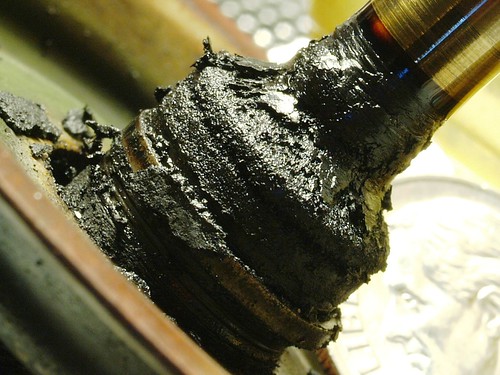Originally Posted By: Cujet
Originally Posted By: Charlie2015
Valvoline Maxlife 20w50
Hahahahahaa, prob not the ideal choice, but the point remains.
On a serious note, chains last longest with ultra clean 30 viscosity oil. Synthetics will result in a cleaner engine with less carbon buildup. Whether that translates to lower chain wear is just a guess.
I run M1, 10W-30 EP in my 2011 3.5EB. About 80K miles, no issues. 5000 mile OCI's. Other EB trucks I know of, use other oils and have troubles. You be the judge. Early on, I chose the 10W-30 EP due to UOA results. The Ford spec oil was showing high wear. Sorry, it's been a long time since I've done UOA on it, so I don't recall the numbers.
Any turbo owner should strongly consider a full synthetic. Today's turbo's still coke up when HTS (high thermal stability) oils are not used. Examples of oils that do not have HTS include synthetic blends. Remember, water cooling the turbo housing does nothing to prevent coke buildup on the turbine side of the shaft.
Watch this video with Mobil 1 testing. Fast forward to 1:40 to see turbo pictures with M1 vs conventional.
https://mobiloil.com/en/article/why-the-...charged-engines
As always, use a quality synthetic, change regularly and choose sufficient viscosity to do the job. That viscosity is likely to be a 10W-30 for certain modern engines.
I think of this kind of thing every time someone gets chastised on BITOG changing their oil before OLM, or using thicker oil than 0w-water when the same engine is spec'd for thicker oil in Europe.
Never mind the mentality that modern oils, even conventional "are so good" now, but clearly there are still issues with long OCI, etc. in certain engine designs no matter what oil.



